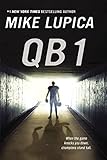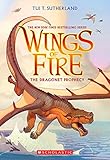As part of my Online Course in 2010, I created the following slide share “model” of Executive Functioning/Metacognition. My “model” continues as a work in progress:
As part of my Online Course in 2010, I created the following slide share “model” of Executive Functioning/Metacognition. My “model” continues as a work in progress:
Beliefs About Learning Executive Function Learning How to Learn Metacognition
In the summer of 2010, I ventured into an online course to learn how to create a wiki. It was a one week online crash course….morning to midnight. It was exciting and challenging. There was always the threat that if you didn’t complete an assignment, you were out. As a tech novice, I was always on the edge of failing. But I made it and created my first wiki: http://explorience1.pbworks.com/w/page/52643140/My%20Story. The focus of that wiki was Learning How to Learn–Executive Function/Metacognition./Self-Directed Learning.
After that step, in 2011 I vaulted into creating a blog titled “want to learn.” Here is the first entry I made:
All of the beginning tech work as well as this blog was based on a course I taught from 1981 to 2006 at St. Michael’s College in the Special Education/Learning Disabilities Graduate Program, after completing a Ph.D. in Development and Learning at the University of Vermont. I had an opportunity to teach that course (Development and Learning) once again in 2016 in a summer marathon. It was quite a challenge, but helped me to update my knowledge base on Executive Function (E.F.), Metacognition, and Self-Directed Learning as well as Social Emotional Development and Learning.
As I restart this blog in 2018, I will focus on Executive Function/Metacogntion in relation to Literacy Learning, with a special emphasis on learning to read especially for children in K-12 who are dyslexic and/or economically disadvantaged.
The first few entries in this blog focused on essential questions about E.F. and Defining E.F.
Executive Function Learning How to Learn Learning Process (Operations) Metacognition
Executive Function has been defined in various ways by a range of authors/researchers. Here is a brief chart of some of those “definitions:”
My construction of an Executive Function Skills Chart several years ago included the following :
| Promoting Executive Function in the Classroom, Meltzer, 2010 | Boosting Executive Skills in the Classroom, Cooper/Kahn, 2013 | Smart but Scattered
Dawson and Guare, 2009 |
| Goal Setting, Planning & Prioritizing | Planning and Organizing
Initiating |
Planning/prioritizing
Task Initiation Goal Directed Persistence |
| Organizing | Organizing | Organization |
| Remembering | Working Memory | Working Memory |
| Shifting and Flexible
Problem Solving |
Shifting | Flexibility |
| Self-Monitoring and Checking | Task Monitoring
Self-Monitoring |
Metacognition |
| Emotional Self-Regulation | Inhibition | Response Inhibition
Emotional Control |
| Sustained Attention | ||
| Time Management |
Description of the Concept of Executive Function
| Metacognition, Motivation and Understanding, Weinert and Kluwe, 1987, LEA | Metacognition, Strategy Use and Instruction, Waters and Schneider, 2010 |
| Flavell (1979)
Metacognitive Knowledge *Person Variable
*Task Variables
*Strategy Variables
|
Schneider, Chapter 3: Metacognition and Memory Development
Changes in the Meta Model From Flavell (1979) Declarative Meta Knowledge: knowledge of human mind and its doings Meta Experiences: Awareness and feeling elicited in a problem solving situations (feelings of knowing) Meta Skills: playing a role I many types of cognitive activity (language, reading, attention, memory)
To More Recent Declarative Knowledge – Knowing That Procedural Knowledge – Knowing How Conditional Knowledge – Knowing Why
|
| Chi
Domain Knowledge *Declarative Knowledge (what) *Procedural Knowledge (how) *Strategies (general) Metaknowledge *Meta Declarative Knowledge *Meta Procedural Knowledge *Meta Strategies |
Beliefs About Learning Executive Function Learning How to Learn
Here are some questions I plan to address over the next several weeks.
How early in their school life can we/do we identify struggling learners?
Do we know the relationship between struggling as a learner and Executive Function skill?
How do we/could we define Executive Function skills?
What role do learning practices of “voice,” “feedback,” “self-assessment,” “choice”….play in developing and using Executive Function skills.
Who are the co-developers of Executive Function?
Beliefs About Learning Executive Function Learning How to Learn Metacognition
In conversations with students about their learning, we need to understand what they know about the “topic” of learning. We need to ask where they acquired their knowledge of the topic of “learning.” Ideally we hope they will compare their beliefs against their experiences as learners.
I believe that there is an expectation that teachers in their preparation (training) were required to “take” a course on learning. What do teachers take away from such a course and apply to their teaching? How does a teacher’s knowledge base about “learning” change over time? Do teachers and students believe the same things about learning? Do they talk about those beliefs?
As a starting place, I have researched recent articles on the topic of learning. Over the next few weeks, I will blog about a few of these.
I start with a series of videos about learning featuring Linda Darling-Hammond and published by the Annenberg Foundation. Here is the link:
https://www.learner.org/resources/series172.html
This is a series of 13 videos about learning covering a range of topics
The first is “How People Learn – Introduction to Leaning Theory and focuses on a discussion with teachers.
https://www.learner.org/courses/learningclassroom/session_overviews/intro_home1.html
Beliefs About Learning Dialogue Executive Function Feedback Frameworks/Research Learning How to Learn Metacognition Student Voices
Beliefs About Learning Executive Function Feedback Learning How to Learn Metacognition Student Voices
by Joan Sedita | 1 April 12, 2017 | 0 Comments
https://keystoliteracy.com/blog/executive-skills-and-reading-comprehension/
From Joan Sedita, commenting on a book by Kelly Cartwright
“Executive skills involve regulating one’s own thinking to achieve desired goals…. Sedita goes on to quote from the text 9Guilford, 2015)
“Here is a summary of how these core skills affect reading comprehension (p. 8-9):”
Cartwright also addresses additional, more complex executive skills:
I am also attaching a Metacognitive Interview/Questionnaire I designed for middle school students:
http://explorience.pbworks.com/w/page/19411540/Metacognitive%20Interview
Beliefs About Learning Dialogue Feedback Learning How to Learn Metacognition
Here is an excerpt from a teacher’s point of view about student voice. For me, this raises a lot of questions:
How do age/grade level impact student voice/choice?
How are choice and teacher mandates (CCSS, for example) related?
How does knowing “what it means to learn” influence student voice/choice.
Here is one starting place – from a high school teacher’s point of view:
Do We Give Students Too Much Choice? By Brian Field
http://www.edweek.org/ew/articles/2016/08/24/do-we-give-students-too-much-choice.html
August 23, 2016
A few brief excerpts:
There is an increased focus on student choice in K-12 education today. This focus has created more student-centered classrooms that use problem-based learning and differentiation of instruction to give students agency in what and how they learn. As a high school teacher, I understand why teachers feel the necessity to cater to all of their students’ strengths by providing opportunities for student choice. But, as schools try to incorporate student-centered initiatives into the classroom, there is often a lack of critical consideration for the potentially negative effects increased choice may have on student learning…..
The new question now becomes: What degree of choice should we have? Though these studies apply to retail, they have grounds in the field of education regarding student choice. As these studies help to show, the current debate surrounding this classroom strategy is not whether students should have choice, but to what degree student choice is effective…..
I have learned in my own experiences that effective feedback takes copious amounts of time when all students complete the same assignment—and the greater variety of student choice only increases that time. There needs to be a balance between an appropriate amount of student choice and the ability of the teacher to impart the feedback necessary to reach maximum student growth in a timely manner….
Beliefs About Learning Collaborative Learning Dialogue Executive Function Individual Differences Learning How to Learn Meta Teachers Student Voices Voices and Choices
A few more of the links from the Reading Sage post on Oracy
Just a few of many links on oracy from the Reading Sage posting
Oracy in the Classroom: Strategies for Effective Talk | Edutopia Oracy in the Classroom: Strategies for Effective Talk | Edutopia
Teaching oracy means putting more intention behind how you guide and organize your students’ talk. When they gather for group work or …
Oracy: The Literacy of the Spoken Word | Edutopia
Teaching oracy is instrumental to better reading and, in particular, writing. In developmental terms, humans acquire oral language first — a …
Oracy Assessment Toolkit : Faculty of Education
In recent years, there has been a growing recognition of the need to help young people develop their abilities to use spoken language effectively. Employers …
Teaching oracy means putting more intention behind how you guide and organize your students’ talk. When they gather for group work or …
Beliefs About Learning Collaborative Learning Dialogue Executive Function Learning How to Learn Student Voices
A starting place for developing Executive Functioning skills.
Suggested citation: Center on the Developing Child at Harvard University (2014). Enhancing and Practicing Executive Function Skills with Children from Infancy to Adolescence. Retrieve from www.developingchild.harvard.edu.
Executive Function Activities for 18- to 36-month-olds
“During this stage of development, children are rapidly expanding their language skills. Language plays an important role in the development of executive function and self-regulation (EF/SR), as it helps children identify their thoughts and actions, reflect on them, and make plans that they hold in mind and use. Language also helps children understand and follow increasingly complex rules—both those that regulate behavior and those that apply to simple games. Additionally, bilingualism is associated with better EF/SR, so parents who are fluent in more than one language should use those languages with their children.”
Executive Function Activities for 3- to 5-year-olds
“Children’s executive function and self-regulation skills grow at a fast pace during this period, so it is important to adapt activities to match the skills of each child. Younger children need a lot of support in learning rules and structures, while older children can be more independent. Ultimately, the goal is to shift children away from relying on adult regulation, so when the child seems ready, try to reduce the support you provide.”
Executive Function Activities for 5- to 7-year-olds
“Games can exercise children’s executive function and self-regulation skills—and allow them to practice these skills—in different ways. At this age, children start to enjoy games that have rules, but do so with widely varying levels of interest and skill. Since an important aspect of developing these skills is having a constant challenge, it’s important to choose games that are demanding but not too hard for each child. As the child players become familiar with these games, try to decrease the adult role as soon as possible; the challenge is greater for children if they remember and enforce the rules independently. Just be prepared with some techniques for negotiating conflict. Flipping a coin or drawing a straw are some methods used by Tools of the Mind, an early education program designed to build self-regulation.”
Executive Function Skills into Adulthood
15 Minute Video on the importance of Executive Function for adults looking for work. “Poverty Effects our Executive Functioning skills.”
Community Development Executive Function Learning How to Learn
| M | T | W | T | F | S | S |
|---|---|---|---|---|---|---|
| 1 | 2 | 3 | 4 | 5 | 6 | 7 |
| 8 | 9 | 10 | 11 | 12 | 13 | 14 |
| 15 | 16 | 17 | 18 | 19 | 20 | 21 |
| 22 | 23 | 24 | 25 | 26 | 27 | 28 |
| 29 | 30 | |||||







